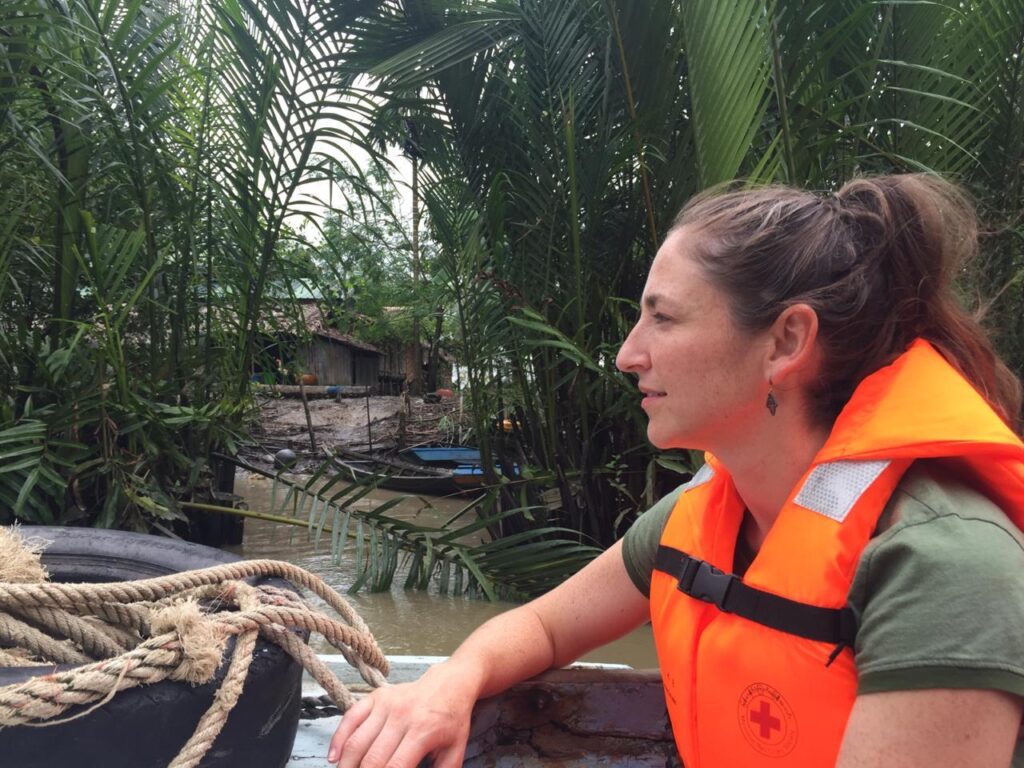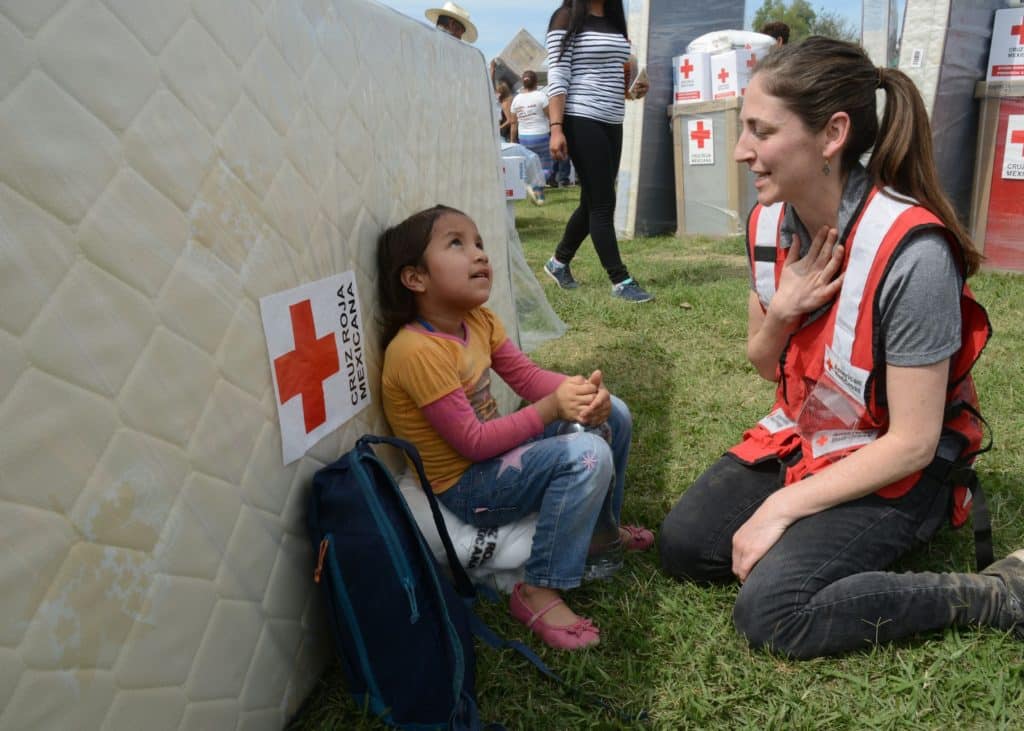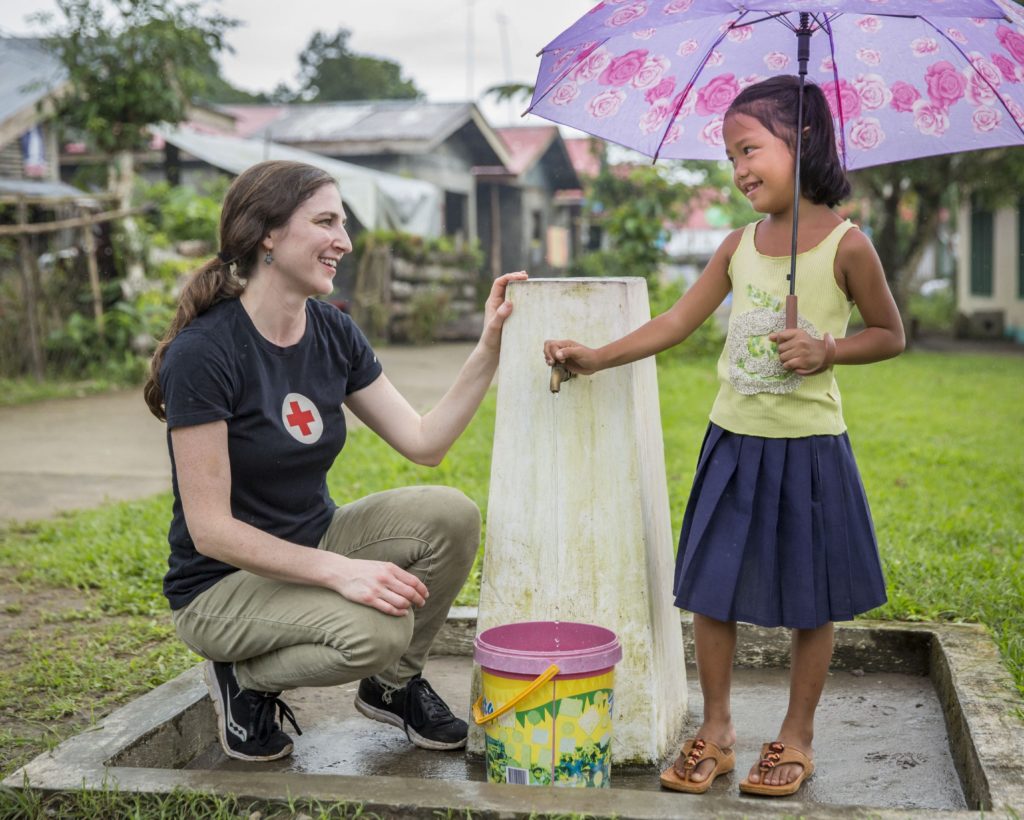
![]() American Red Crosser Jenelle Eli is a humanitarian, crisis communicator, refugee advocate, and most recently, named to the class of 2022 PRNEWS Top Women in the Industry Innovators category.
American Red Crosser Jenelle Eli is a humanitarian, crisis communicator, refugee advocate, and most recently, named to the class of 2022 PRNEWS Top Women in the Industry Innovators category.
Between her near back-to-back deployments over six months to the Mediterranean Sea and Poland in support of the Ukraine Crisis, Jenelle has secured prominent headlines in more than 180 countries to help people around the world understand urgent, lifesaving needs during more than 10 international missions with the Red Cross.
Among her responsibilities, Jenelle has helped secure ports of safety for stranded migrants at sea, enforced neutrality and the importance of upholding the Geneva Conventions, stood in as an impartial aid actor in the midst of war, protected the identities of vulnerable families fleeing violence, and contributed to the message in helping patients receive lifesaving blood during a national shortage.
Jenelle has dedicated nearly two decades of her life to amplifying the stories of displaced survivors through a lens of empathy and empowerment rather than victimization and pity. It is no surprise that when she was invited to speak at the United Nations in May, she discussed the importance of humanitarian aid for migrants and drew on her Red Cross experience helping people around the globe to amplify that message.
Now, within these next six months, Jenelle will join the International Federation of Red Cross and Red Crescent Societies (IFRC) in Geneva as head of media relations and advocacy. In this role, she’ll continue her work advocating for those in need while building empathy for the world’s most vulnerable people.
If you’re interested in learning what drives Jenelle’s passion for this type of work, keep reading to find out.

What has motivated you to raise your hand for these high-intensity international missions with the Red Cross?
“Right now, there are more people displaced from their homes than at any other point in history. I studied refugee issues in school and have devoted my career to raising awareness about people’s needs on migratory routes and even once they’ve reached safety. I raise my hand for international missions because I know that getting refugees’ stories out and elevating their voices is the only way to truly create space for empathy.”
Who has inspired you along the way?
“Every mission I go on feels more inspiring than the last. I am in awe of people’s strength when they’re going through challenges and their ability to hold on to hope. When I worked aboard a rescue ship in the Mediterranean Sea, my team rescued a 17-year-old kid from a sinking raft. Traveling without parents, all the way from Somalia, he told me of the hardships he faced and the family members he lost along the way. He had every right to be angry and tired, yet every day he was the first person to wake up and help fellow passengers. He helped us serve breakfast and tea, washed dishes, and made the kids aboard feel comfortable. Meeting people like him is what keeps me going.”
What does winning this award mean to you?
“It’s not easy to get attention from audiences about humanitarian crises—especially because there are just so many taking place at one time. People get disaster fatigue and start tuning out all the hurt that’s happening in the U.S. and around the world. Yet, harnessing people’s attention for good is the only way that things are going to change. I’m really pleased that the professional world of PR recognizes the importance of humanitarian communication—and that communicating in a way that ensures dignity for refugees is key. Words matter. And I think this award recognizes that.”
What do you hope your story inspires others to do? How can people help?
“I just want people to know that they don’t have to deploy to crisis zones to make a huge difference! Everyone can have a humanitarian impact in their own way—whether that’s volunteering in their community, donating money, raising awareness, or choosing a career responding to crises.
In the U.S., if you want to help refugees, volunteer for an organization helping to reconnect them with separated family members (like the Red Cross!) or a group that welcomes newly-arrived refugees in small cities and helps them navigate their new lives here. There are loads of ways to be a humanitarian.”

Learn more about how the Red Cross works internationally to help reconnect families separated by crises, rebuild communities devastated by disasters, and work alongside health organizations to eliminate global disease here.
